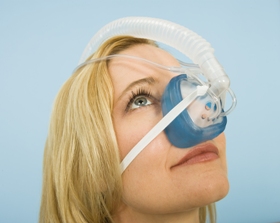There are so many options available that most people will qualify for one form of sedation or another, from the very young to the greatest generation.
It’s important that you discuss with your dentist ALL of your medical history and any concerns so the ideal protocol can be chosen to ensure the best results. Be sure to mention any surgeries, herbals, or the possibility of pregnancy.
When it comes right down to it, we dentists are all in the profession of smiles: Big, toothy, sparkling, healthy smiles. And what a wonderful profession it is.
Stanley Gordon West, the late Minnesota author of Growing an Inch, coined the expression, “Smile and the world smiles with you.” That’s never been more true, or more necessary than it is today. A smile has no political affiliation. It is not the exclusive province of any class, race, nationality, age or gender.
Obstetricians tell us babies display so-called reflex smiles in utero. By the time newborns are between six weeks and 12 weeks old – many months before they utter “mama” or “dada” – their first real smiles emerge. It’s nature’s way of helping infants immediately connect to those in the world around them.
How very smart nature is – many studies have demonstrated that smiling makes us feel good and actually live longer. Smiling helps lower blood pressure, fight stress, and increase mental clarity.
Conversely, the tens of millions of Americans who are hesitant to smile, or never do, because of oral pain or because they are ashamed of their broken, missing or stained teeth miss out on the myriad of physical and mental health benefits of a healthy smile.
That’s where all of us come in.
As members of DOCS Education and SedationCare dentists, we are uniquely enabled to turn a closed-lipped, unhealthy mouth into one that radiates warmth, self-confidence, connection and, most importantly, good oral hygiene.
There are so many reasons to smile; isn’t it time you restored yours?
A sedative helps you relax. It’s that simple. They work by slowing the actions of your central nervous system. It’s a major chill! You are aware of your surroundings, but are less responsive to the sound of the drill or the smell of materials and the elevator music.
These kinds of medication have been used for thousands of years, with records dating back to the Egyptian pharaohs.) They reduce your sense of pain, allowing you to relax during treatment.
Today's doctors have a continuously expanding list of new sedatives to help lessen pain and dental anxiety that are more powerful and less likely to carry unpleasant side effects. Because all medications differ, and there's no one sedative that's appropriate for every patient. Some of the drugs take action quickly but rapidly fade in potency, while others last for hours. Your doctor will weigh all the options to make sure you have a safe and wonderful experience.
Sedatives are given to patients in a variety of ways, including by mouth, under the tongue, inhaled through the nose, or intravenously (through the veins). Most people opt for oral sedation, but the other methods are there if needed.
You know this as laughing gas. You breathe it in, and it can cause such a sense of ease that even the dentist’s office can make you smile. Nitrous oxide is mixed with oxygen for a safe, calming effect. It’s the most popular form of sedation used world-wide!
IV sedation medication is delivered through a very small needle placed in either the top of your hand or your inner elbow, just like many out-patient procedures you might experience.
You’re not alone and we understand. The truth is, many of us are afraid of them too. Patients say it feels like a small prick but even that is minimized by the use of topical sedatives wiped onto the skin to numb it. If it’s too difficult for you, some dentists may give you a little something the night before.
Don’t let it keep you from getting that smile you’ve been dreaming of for years.
It makes you relax and you’re completely comfortable. No anxiety, no pain. What’s better than that?
You lie back in the dental chair with your eyes closed and your thoughts far away. You are not actually asleep, but you forget the visit like you are. All the while, you open wide and turn just a little this way or that. High quality dentistry is done is less time. It great if you gag or have difficulty sitting for a long time. Once again, those smells and sounds won’t bother you one bit.
Your dentist will have optimal control of the amount of medication administered and can easily increase or decrease your level of sedation as needed, quickly and comfortably. It works faster too!
Find a qualified SedationCare dentist near you by entering your zip code at the top of this page. Then simply call or email the office you have chosen. The Sedation Team will answer any questions you have and ask you some simple questions to help ensure you get the care you want and deserve.
When you're ready, schedule a time that works for you for a welcoming visit.
This is when the Sedation Team will gather information regarding your health and discuss your needs and desires. If you're comfortable, they will take x-rays and look inside your mouth.
You will never be judged or made to feel embarrassed.
Knowledge about sedation dentistry treatment is not only powerful—it is empowering. It is important to talk to your dentist about your fears and concerns during your consultation before any dentistry is performed. Request information on your dentist’s training, credentials, and the protocols they will use, prior to the appointment. It is critical that you provide your dentist with an updated health history including any medications you are on, as well as vitamins and supplements. Factors like smoking and alcohol consumption can alter the effectiveness of sedation medications, so be sure to tell your doctor about any habits you may have.

